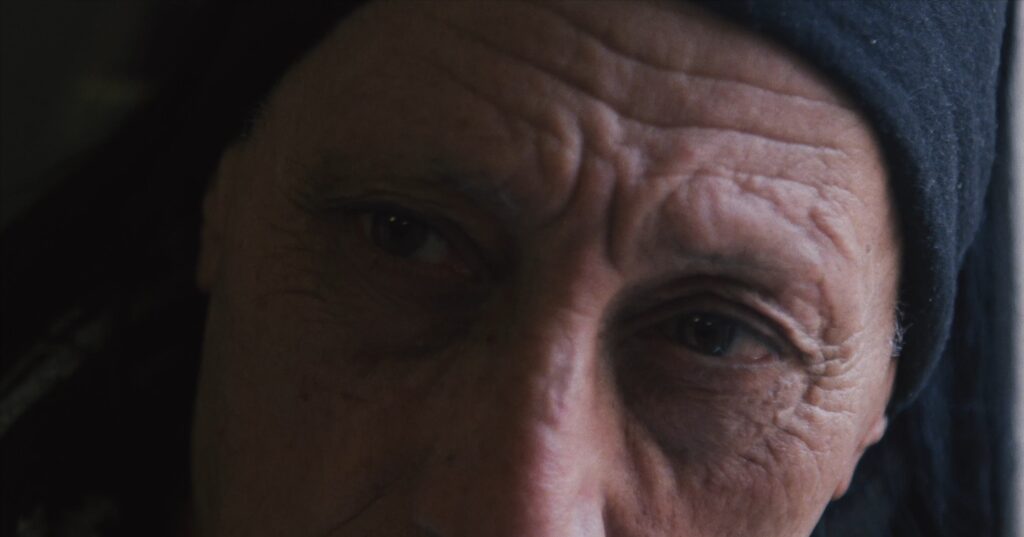“I wanted the second Holy Door to be here, in a prison.”
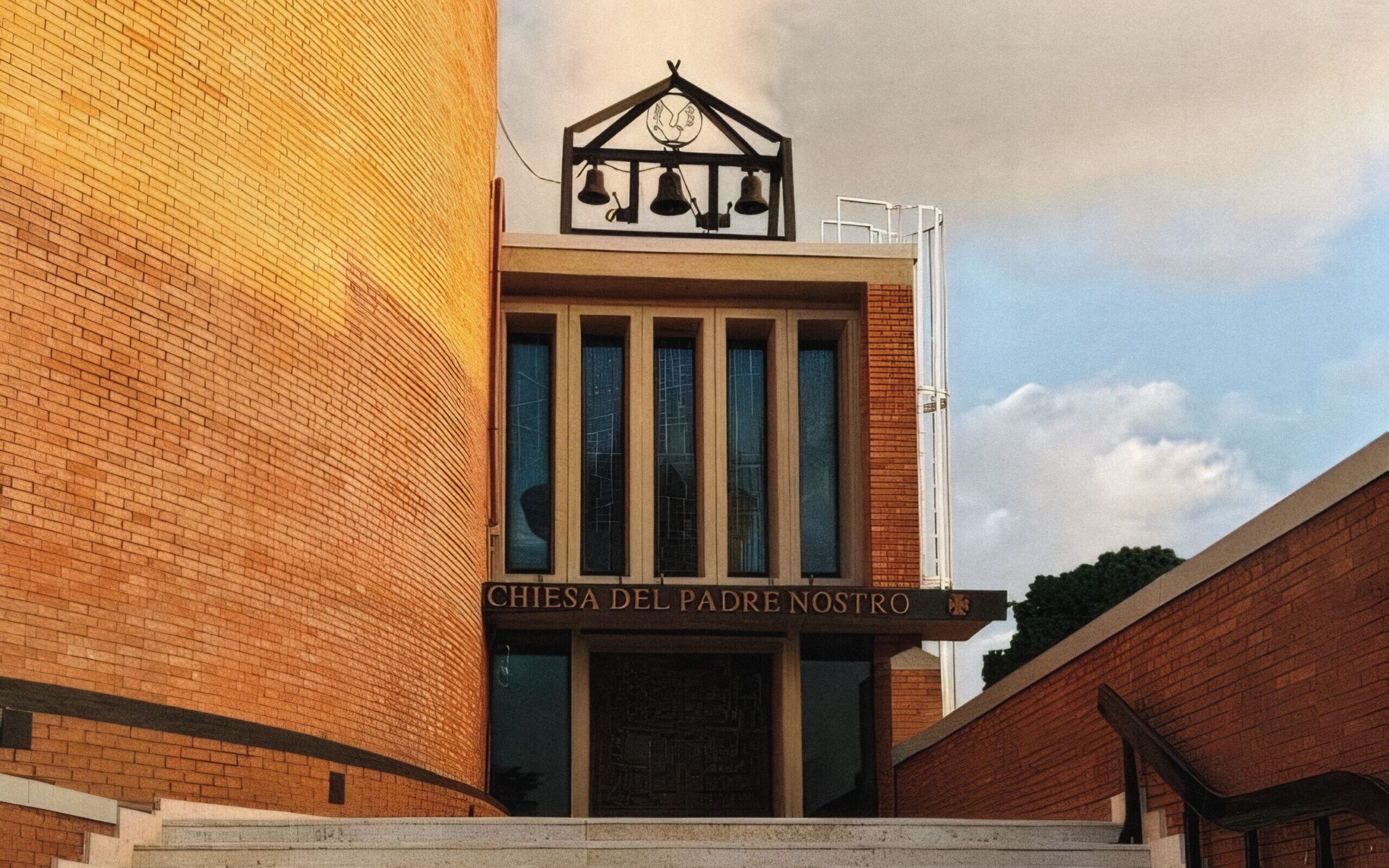
Christian Raimo and Giulio Pecci on the Holy Door in Rebibbia.
Pope Francis died in prison. He entered Rebibbia, fell into a coma, and died. It gave meaning to his mission. For the first time in history, a pontiff opened a Holy Door inside a penitentiary. Francis himself said that on that occasion, for one day, Rebibbia became a basilica: “I opened the first Holy Door at Christmas in St Peter’s, but I wanted the second Holy Door to be here, in a prison. I wanted each of us here, inside and outside, to have the chance to fling open the doors of our hearts and understand that hope does not disappoint.”
In prison, there is no such thing as an ordinary day. They escort us inside. We’d emailed over images of our documents a few days earlier; now we need to hand over the originals at the checkpoint. Christian has since misplaced his driving licence; he has a duplicate and a passport, but there’s no guarantee they’ll let him in. The person bringing us inside says things have got worse in recent years, worse in the last year, worse in the last few months, and worse in the last few weeks. We get through. At the guard booth, we hear a semi-hysterical, indolent kind of laughter born of exhaustion.
In recent days, 150 inmates from Regina Coeli have been transferred to Rebibbia after a section of the ceiling collapsed. The atmosphere is like that of a waste-management company. Staff managing the influx have to improvise daily just to keep up with emergencies. There are more inmates than the facility is built for, almost half as many again. No one seems to care, except those tasked with finding space. The vast majority of people have no idea what a prison even looks like. No one enters unless they are serving a sentence or working here. Even relatives are shown to designated rooms once a week.
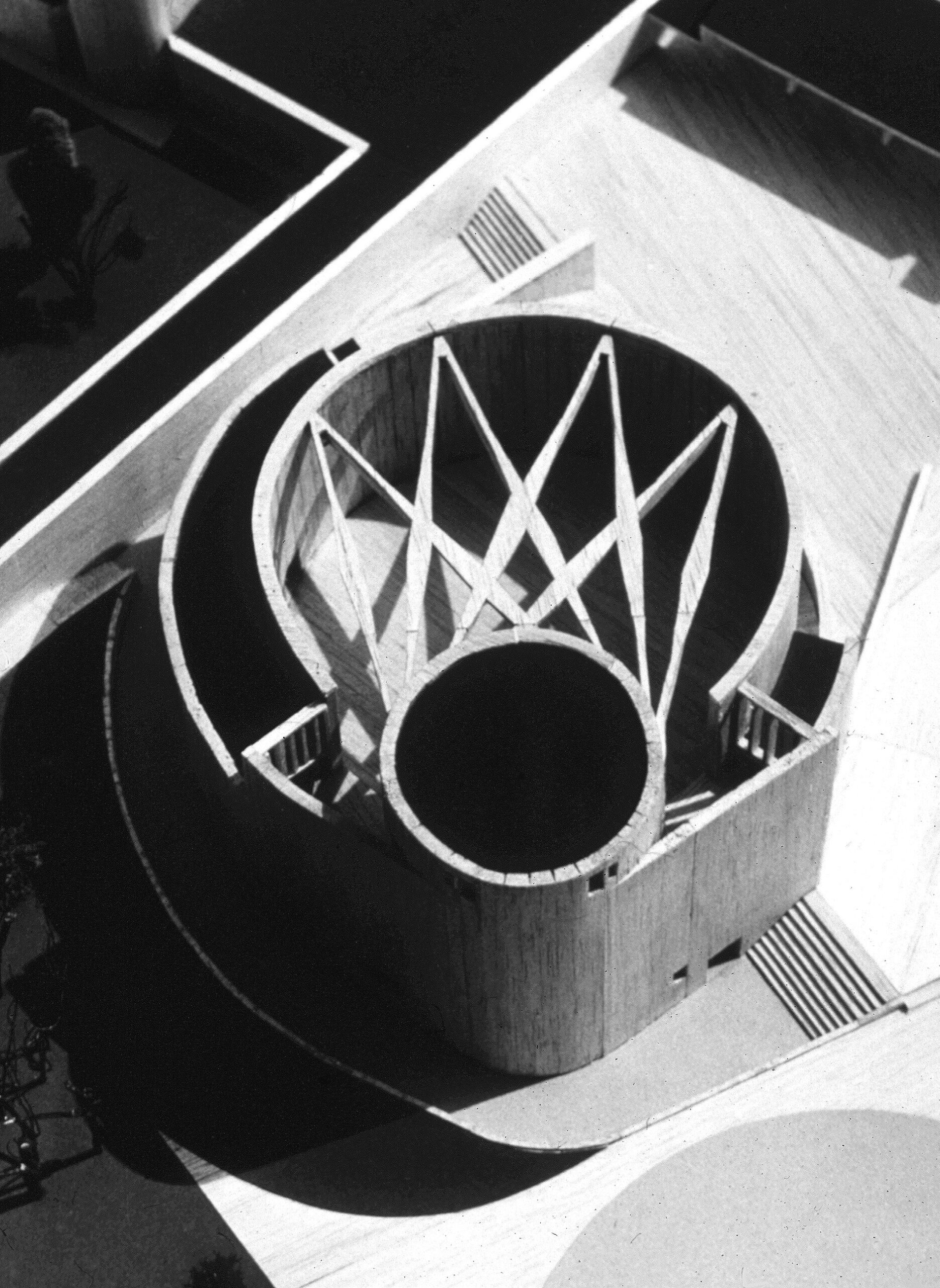
A prison chaplain is a strange figure—it’s never clear whether they actually work there or not. We make our way to the office where the four priests assigned to this wing are based; Rebibbia has six in total. They have the look of civil servants, or perhaps working-class parish priests. Is what they do here a service, or a pastoral mission? Is the chaplaincy a job, or not? In practice, they do what all priests do: offer help in exceptional circumstances. They draw on Caritas funds for basic goods and support for indigent inmates. They bring in tobacco, shampoo, toothpaste, toothbrushes, coffee, cigarettes. They fill in or hand over the ‘apps’ on behalf of inmates to whichever official handles them. They joke with anyone feeling down. They hear confessions and say Mass on Sundays. Almost 20% of the prison population attends Mass. Outside these walls, attendance barely reaches 3 or 4%.
Everyone knows who Christ is.
Does the Gospel help? We ask. It is a message of liberation—from the fear of death and from sin, they tell us. So perhaps it does help. Saint Paul had himself imprisoned deliberately so that he could preach the Gospel in Rome. Jesus, too, allowed himself to be taken. Crucified, even. Those inside sometimes identify with the thieves, sometimes with the martyrs. Often, the same inmate shifts between the two over the course of days. It depends on what happens inside, with other inmates and officers; and on what happens outside, with family and court cases. Faith mingles with judicial punishment. How could it be otherwise: is there any concept more Christian than that of penance?
Saint Paul had himself imprisoned deliberately so that he could preach the Gospel in Rome. Jesus, too, allowed himself to be taken. Crucified, even. Those inside sometimes identify with the thieves, sometimes with the martyrs.
Inmates allowed to move with some freedom have special permits. They retain a slightly childlike familiarity, like helpful men in their sixties. That prison infantilises is a fact: you are autonomous in nothing. Everything requires a request to the authorities—buying a toothbrush, writing a letter, exercising, speaking to a family member. Inmates are accustomed to praying daily. Christian doctrine teaches that God is unchanging in his essence, his love, and his plans. Prison authority more closely resembles the capricious gods of Greek tragedy. Prayers may fall into a void, be granted or forgotten, chewed up and spat out with few frills and fewer explanations. There is no divine plan in prison, only a vast bureaucracy. Things simply happen, depending on timing, grudges, and chance.
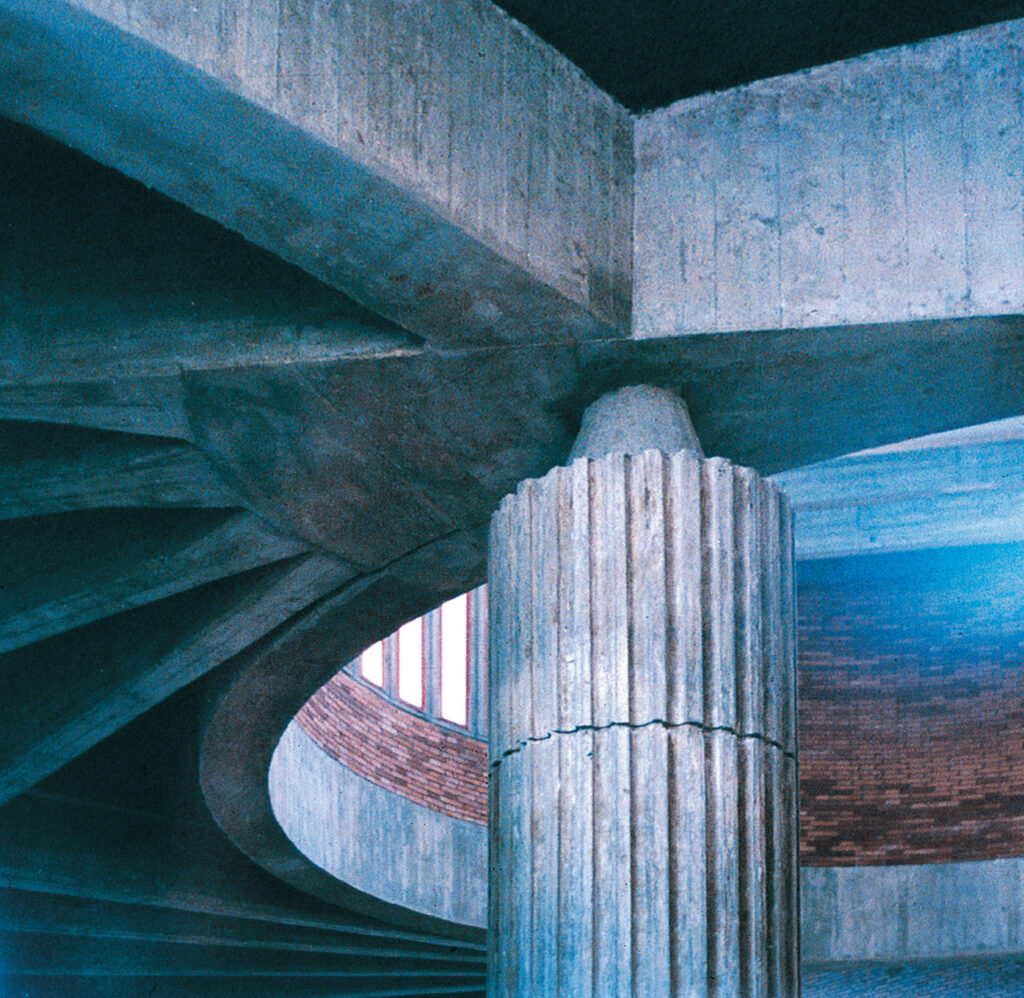
Chaplains are not paid by the Church but by the Ministry of Justice—a curious legacy. Law No. 354 of 26 July 1975, the penitentiary ordinance, Article 26, recognises the right of inmates and internees to profess their faith, to be instructed in their religion, and to practise their worship. For Catholic worship, there must be a chaplain in every prison. Law No. 68 of 4 March 1982, which regulates the legal status of chaplains assigned to prisons, establishes their legal and economic position.
According to the Antigone report, chaplains are present in every penitentiary. There are more than 400 across Italy. On average, there should be one chaplain for every 400 inmates. Does the maths work? Almost 70,000 inmates in Italy, or more? And what about other religious representatives? In practice, they hardly exist. On paper, they should be provided for other Christian denominations: Orthodox, Evangelicals, Jehovah’s Witnesses. We forget to ask about them. We ask instead, “And what about Muslims?” Someone comes in on the final day of Ramadan. Perhaps some inmates don’t declare their faith for fear of being mistaken for Islamist fanatics? According to another Antigone report, 79.5% of prisons have no religious spaces except Catholic ones.
Outside, faith relies on collective ritual; inside, the direct relationship with God is cultivated far more intensely: they’re on familiar terms.
Prison is a basilica whose doors are closed to anyone who is not Christian. Some institutions find makeshift solutions: at the Panzera Institute in Reggio Calabria, inmates of other faiths gather in schoolrooms or spaces used for rehabilitative activities; in Cassino, they meet in a visiting room; in Frosinone, they use the rooms where meetings with lawyers and social workers are held. In Perugia, Muslim inmates sometimes pray in the area outside the yard; in Verona, they pray in the Catholic chapel. In Ravenna, in the corridor next to the classrooms; in Belluno, in the multipurpose hall. In Spoleto, to give one last example, the library is made available but only for Buddhist practices.
The Antigone report also states: “Where there are no spaces for non-Catholic rites, prayers are held in the cell.” Almost everyone prays in their cell, Catholic or not. Prison forces a daily collective life that is exhausting and enforced. The inmate is constantly searching for the personal—for a space that belongs to them alone. Faith is practised as an act of love and discipline towards oneself. It is a private spiritual space, inaccessible to others. Even if there are six in a cell, or more if there’s an emergency. Outside, faith relies on collective ritual; inside, the direct relationship with God is cultivated far more intensely: they’re on familiar terms.
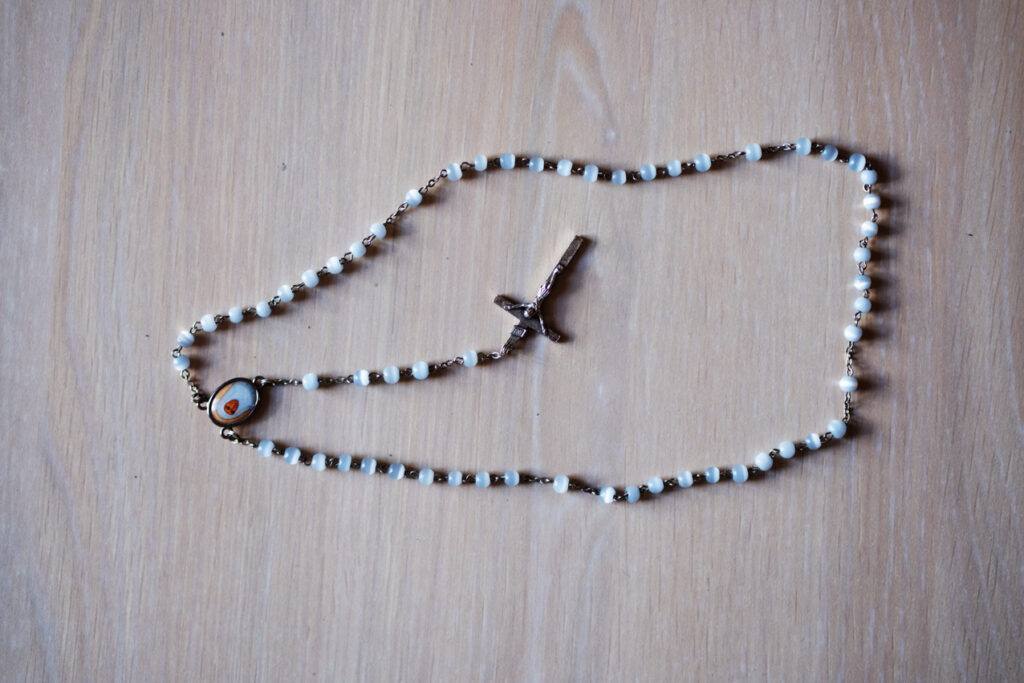
Until a few years ago, Rebibbia seemed better than other prisons. Projects, education, work. Now everything is painfully difficult. Every day brings some new problem. We thought we had escaped, at least, the cycle of suicides in prison. Then they came—one after another. Prison is for the poor, they tell us. Prison is criminogenic. Everyone’s saying that now, as if it were a line from a sociology textbook. Prison is for the poor who cannot afford a defence. We tell ourselves that each person is entitled to redemption. A ray of light: all it takes is a single hole in the wall to illuminate the whole room. This is what Pope Francis was alluding to. This is prison as basilica. There is punishment, of course, but there must also be hope. They are two sides of the same coin.
And yet even the seemingly quietest moments hold a kind of unspoken violence. Prisons should not exist, we think. We are abolitionists, we say. They smile at us. It must seem easy, if you don’t come here every day, to imagine what prison is like. But for those who come and go—working, praying, saying Mass, offering comfort—it’s anything but easy, I think, to understand it fully. Prison is a liminal space. Like purgatory, one might say. But purgatory carries within it the certainty of salvation, an assured ascent. Prison often takes on the contours of the ‘dark wood’, full of beasts and crucial forks in the path. If it didn’t exist, wouldn’t we be better off?
